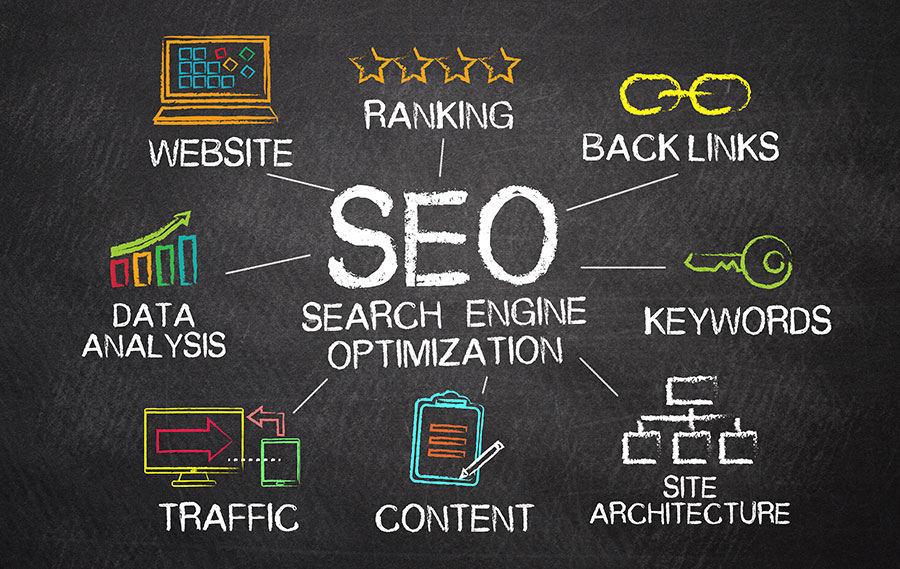Search Engine Optimisation, or SEO for short, can best be described as the process by which websites are created, modified, managed and marketed with the aim of increasing their natural position in search engine results pages for search terms people are using to find the information they want.
More to the point … what does SEO really mean to the average business owner/manager? Lets look at it another way.
WHAT YOU HAVE
You have a website made up of pages of information about what your business does, the products and services your business offers and some contact information so potential customers can get in touch. Fairly straight forward so far … pretty much just like the really large number of other businesses also online these days.
Now all you need to do is sit back and wait for the hundreds or hopefully thousands of eager customers to arrive at your online shopfront, right?
Not quite.
How are all these people automatically going to know about your products and services? The answer is … they won’t. There are too many websites online now for anyone to know what’s out in internet land. So most people use a search engine to do the searching for them.
WHAT A SEARCH ENGINE DOES
Type in a key word or phrase to any search engine and you get back a list of (hopefully) relevant links to websites that have something to do with the phrase that was typed in. Search engines try and work out the relevancy of a website to a particular search term by using fancy algorithms, data matching, language cues and other factors, matched against a set of data they gather from all the websites they look at (crawl). All this data is in their “index”.
Now, when a search engine comes by to crawl your business website, it looks at all the content it can find by following each link on your site, to all of your other website pages. All the information it finds – text as well as image, document and video information – is added to their giant “index”, ready to be analysed, processed, compared and finally given a “score” (or rank or value or whatever the latest catchphrase is). I’ll just use “score” as that vague notion of relevancy that seems so important.
This “score” is the magic value that pits your website against another website when it comes to being relevant for a particular search term. As you may know, most people don’t go past the first page of the search engine results pages (SERPs). Usually there are 10 results on the first page.
So, out of the hundreds, thousands or even millions of results for a particular search, you as the business owner/manager, want the “score” for your website to be somewhere in the top 10 of the total number of results, ideally number one, two or three. The higher your “score”, the more relevant your site must be. The more relevant it is the more likely you’ll get the searcher to click through to your website. Pretty simple really.
WHAT YOU NEED TO DO
Finally down to the optimisation part.
Now that you know your website needs a good “score”, what do you need to do to get that magical value?
Your website needs to be optimised in the following five ways:
- Your website needs to be built correctly to be easily crawled and indexed by a search engine.
- The content of each page needs to be clear and readable.
- The content needs to be quality … no point writing junk as that won’t help anyone.
- Other websites should want to link to your quality content.
- Your quality content should be shareable.
If your site is built correctly (1), is clear and readable (2), has quality content (3) that is linked to (4) and shared with other sites (5) then you have a relevant and high value website. Congratulations … your website will have a high chance of out-ranking those others in the top 10 that may not be optimised as well.
Your website or page you are optimising doesn’t have to be better than all the possible millions of pages for a particular search term … it just needs to be a little better that the direct competition (those sites in the top 10 search results for a particular search term).
Once you work out who the competition is and what they are doing or have done to get where they are in terms of links, content and shareability etc, you just need to do the same but a little better.
No need to outrun the lion … you just need to outrun the competition!
SOME HOMEWORK
So now you know the basic idea of SEO, how about taking 5 minutes to look at your own website more closely?
Can you say that your website has clear and readable content? Would you say it is well written and informative? Do you think other websites would link to your page content? Could you share you content on other sites in a way that will provide value?
If the answer is no to any of these questions, there is room for improvement. If your website doesn’t rank well for search terms you’d like to be found by, there is definitely something that can be done to improve that situation.
